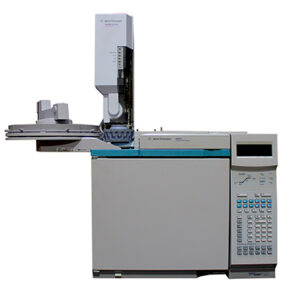volatile oils
Gas Chromatography – Flame Ionization Detector (GC-FID)
EGP0.00 / runGC is defined as a physical technique for the separation of volatile and semi-volatile compounds by passing a mobile carrier gas over a stationary phase. The Separation occurs as analytes partition in and out of the stationary phase while being carried through the column by the moving mobile phase. The major factor in separation is due to analytes having different affinities for the stationary phase.
FID is considered as almost universal for organic compounds this is effectively the detector par excellence, of GC. The gas flow issuing from the column passes through the flame of a small burner fed by a mixture of hydrogen and air. The detector destroys the organic compound present whose combustion results in the release of ions and charged particles responsible for the passage of a very weak current between two electrodes (pd of 100 to 300 V).

